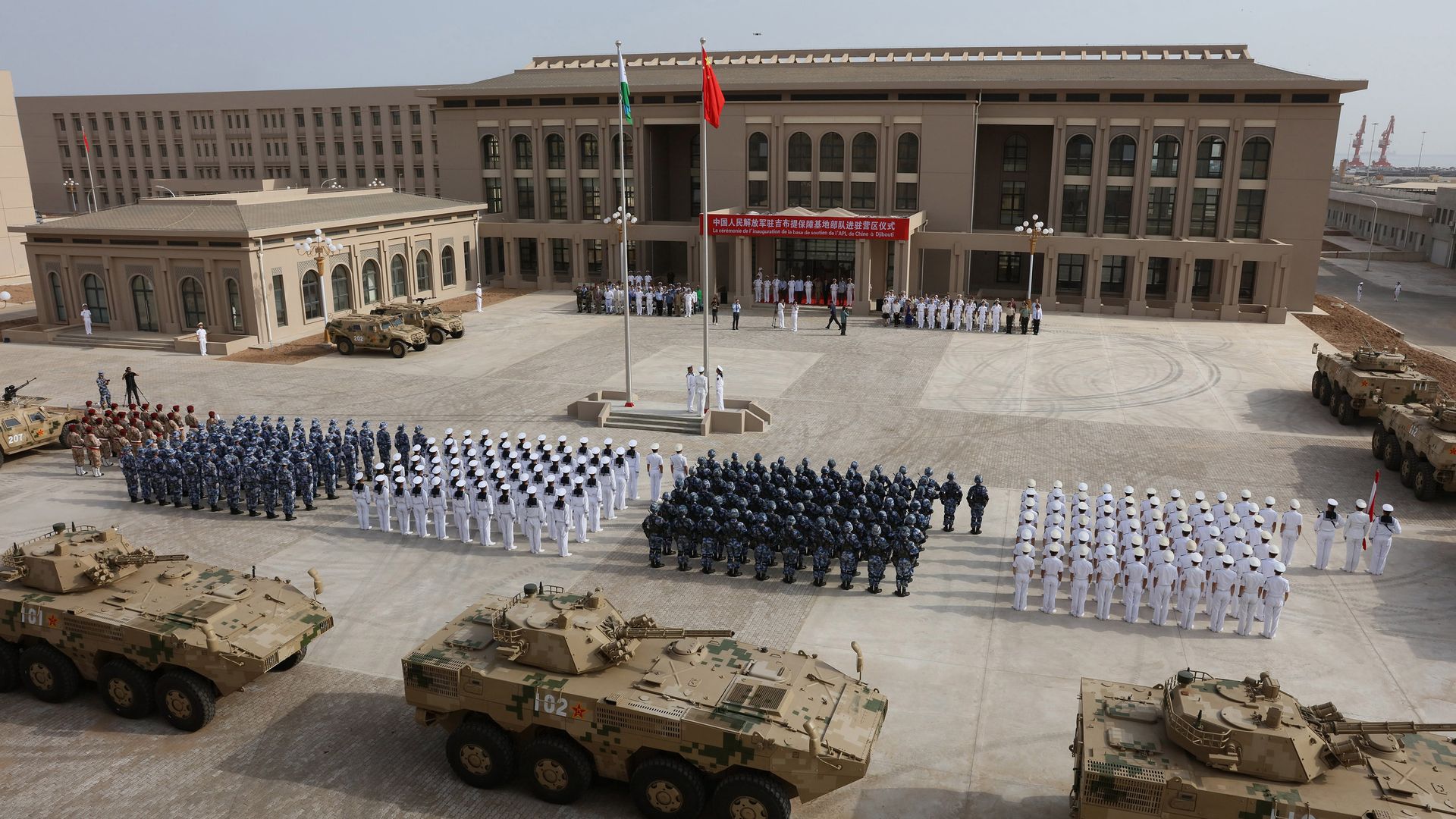China’s debt-trap diplomacy is spreading across Africa
Add Axios as your preferred source to
see more of our stories on Google.

The opening ceremony of China's military base in Djibouti. Photo: STR/AFP/Getty Images
China is leveraging debts to gain control of strategic ports and secure primary access to African oil in Angola, Kenya and Djibouti.
Why it matters: The Chinese are offering up attractive infrastructure projects to the countries that need them most and following up with escalating demands for influence. That approach will spread to even more of the globe under Beijing's trillion-dollar Belt and Road Initiative.
Angola is using its precious resource, crude oil, to chip away at a $25 billion debt to China.
- Since the two countries established diplomatic ties in 1983, China has loaned $60 billion to Angola through investments, loans and projects — one of the most recent being a $600 million deep sea port off the African nation's shores.
- Instead of using cash, Angola pays China back with oil (it's Africa's second-largest producer) which means its ability to repay debt depends on the price of oil, writes Yinka Adegoke, Quartz's Africa editor, in his weekly brief. It also leaves less oil for Angola to sell to other trading partners.
Djibouti is home to China's only overseas military base, and it could soon give up a key port to Beijing.
- After developing ties with African countries through its involvement in a global anti-piracy effort, China built up enough of a relationship to set up a full-scale military base in Djibouti, where the U.S. also has a base. Tensions escalated this month when Chinese military fired lasers at U.S. aircrafts from the base.
- And China's influence in Djibouti may expand. As of the end of 2016, China owned 82% of Djibouti's foreign debt, per a report from the Center for Global Development.
- "Chinese shippers could use the country to tap lucrative East African markets. China also built a railway from Addis Ababa to the port to transfer Ethiopian goods," the Wall Street Journal's Nikhil Lohade and Matina Stevis-Gridneff write.
- Mahamoud Ali Youssouf, Djibouti's foreign minister, brushed off concerns, saying Chinese debt is "so far manageable." He said, "Let me first underline the fact that no country can develop itself without having a strong infrastructure. And China is, from that perspective, a very good partner."
The majority of Kenya's external debt is Chinese, and the country has a growing trade deficit with Beijing.
- More than 70% of Kenyan foreign debt is owned by China, per Quartz. And Kenya has just joined the Asian Infrastructure Investment Bank, China's answer to the World Bank. "The growing interest in the multilateral financial institution in Africa points to China’s emergence as a favored lender, rivaling the World Bank," per Adegoke.
- But the Kenyan public is wary of China's influence, he writes. "The concern is Uhuru Kenyatta’s government and others before had been naive in their lopsided dealings with the Chinese."
Go deeper: Sri Lanka falls into the Chinese debt-trap
